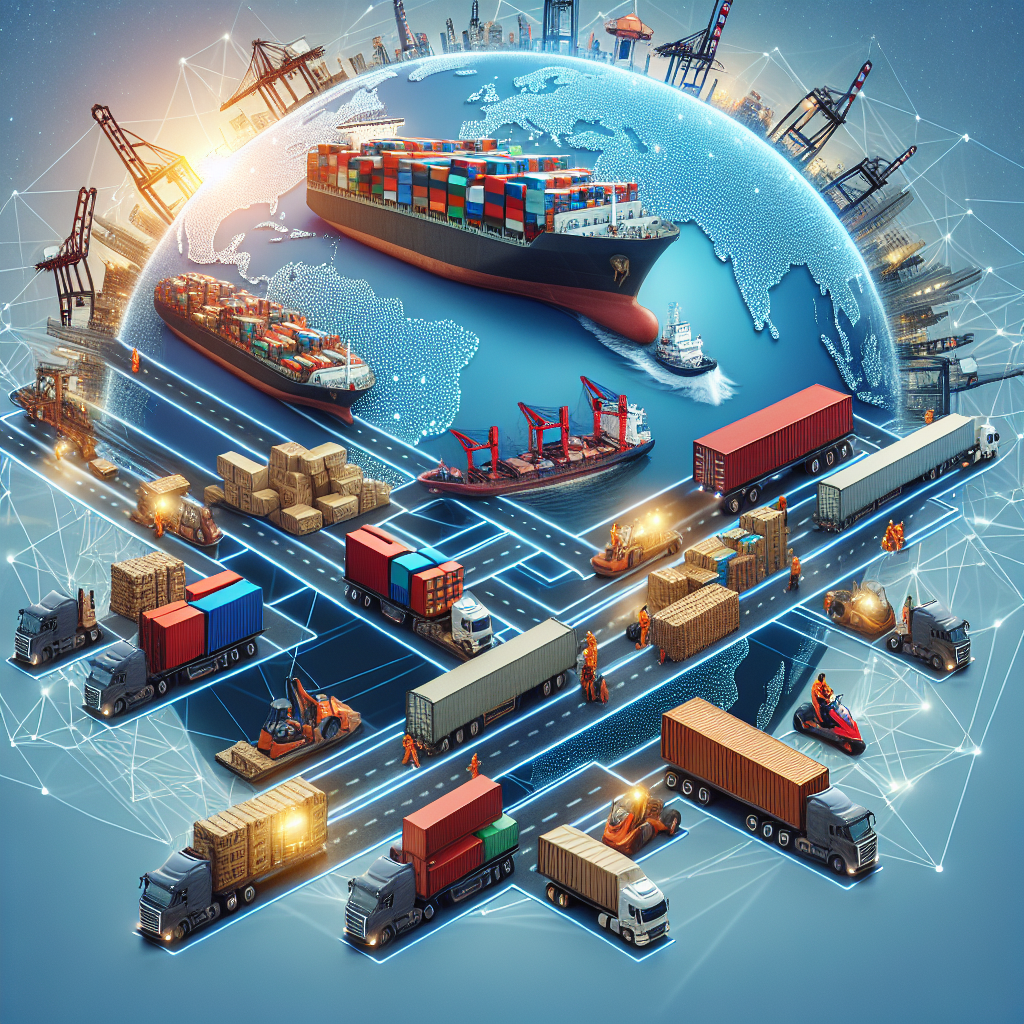Ethical Considerations in the Expansion of Global Shipping Networks
In an era defined by globalization, the expansion of global shipping networks has become a pivotal element in facilitating international trade, fostering economic growth, and connecting markets across continents. However, as these networks grow, they bring with them a complex array of ethical considerations that must be addressed to ensure sustainable and equitable practices. This article explores the ethical implications of expanding global shipping networks, focusing on environmental impacts, labor rights, economic disparities, and the responsibility of stakeholders.
Environmental Sustainability
One of the most pressing ethical concerns in the expansion of global shipping networks is the environmental impact. Shipping is a significant source of carbon emissions, contributing to climate change and ocean acidification. The industry also affects marine ecosystems through the discharge of ballast water, air pollution, and the potential for oil spills. Ethically, there’s a responsibility to mitigate these environmental impacts. This includes investing in cleaner technologies, such as low-emission fuels and energy-efficient ship designs, and adhering to international regulations aimed at reducing the environmental footprint of shipping activities.
Labor Rights
The global shipping industry relies heavily on the labor of seafarers, who often work under challenging conditions. Issues such as long working hours, inadequate rest, and exposure to hazardous environments are common. Moreover, the global nature of the industry sometimes leads to a lack of clarity about which labor laws apply, making it difficult to ensure consistent protection of workers’ rights. Ethical considerations demand the enforcement of fair labor practices, adherence to safety standards, and the provision of adequate living conditions on board ships. It also involves ensuring that seafarers have access to mechanisms for reporting grievances and obtaining redress.
Economic Disparities
The expansion of global shipping networks can exacerbate economic disparities between developed and developing nations. While developed countries often have the infrastructure and resources to benefit fully from global trade, developing countries may struggle to compete. This can lead to situations where wealth and benefits are unevenly distributed, undermining the potential for inclusive economic growth. Addressing these disparities requires implementing policies that support the development of shipping infrastructure in less developed regions and fostering fair trade practices that benefit all parties involved.
Responsibilities of Stakeholders
The ethical considerations of expanding global shipping networks encompass the responsibilities of various stakeholders, including shipping companies, governments, international organizations, and consumers. Shipping companies must prioritize sustainable and ethical practices in their operations, from environmental conservation to fair labor practices. Governments and international organizations have a role in creating and enforcing regulations that promote ethical standards in shipping. Meanwhile, consumers can drive change by demanding transparency and ethical practices in the supply chains of the products they purchase.
Addressing the ethical implications of global shipping network expansion is crucial for ensuring that this growth occurs sustainably and equitably. It requires a collective effort from all stakeholders to prioritize environmental conservation, protect labor rights, address economic disparities, and uphold high ethical standards.
FAQs
Q1: How can consumers influence ethical practices in global shipping?
A1: Consumers can influence ethical practices by prioritizing products and companies that demonstrate a commitment to sustainable and fair shipping practices. This includes supporting brands that are transparent about their supply chains and that actively take steps to reduce their environmental impact and ensure fair labor practices.
Q2: What role do governments play in promoting ethical shipping practices?
A2: Governments play a crucial role by setting and enforcing regulations that govern shipping practices. This includes implementing international agreements aimed at reducing environmental impacts, ensuring safe and fair working conditions for seafarers, and promoting economic policies that allow equitable participation in global trade.
Q3: Are there international organizations focused on ethical shipping practices?
A3: Yes, several international organizations focus on promoting ethical shipping practices. The International Maritime Organization (IMO) is a key player, setting global standards for safety, environmental performance, and labor conditions in shipping. Other organizations, such as the International Labour Organization (ILO), also contribute to establishing fair labor standards in the industry.
Q4: Can the expansion of global shipping networks be sustainable?
A4: Yes, but achieving sustainability requires concerted efforts to minimize environmental impacts, ensure fair labor practices, and address economic disparities. This includes investing in clean technologies, enforcing stringent environmental and labor regulations, and supporting the development of shipping infrastructure in less developed regions.
Q5: What is the impact of global shipping on climate change?
A5: Global shipping significantly impacts climate change, contributing to carbon emissions that drive global warming. The sector is responsible for a significant portion of the world’s greenhouse gas emissions, making it imperative to adopt cleaner fuels and more energy-efficient shipping practices to mitigate its climate impact.
In conclusion, the ethical considerations in the expansion of global shipping networks are multifaceted and require a holistic approach to address. By focusing on environmental sustainability, labor rights, economic disparities, and the responsibilities of stakeholders, it is possible to foster a more ethical and sustainable future for global shipping.

